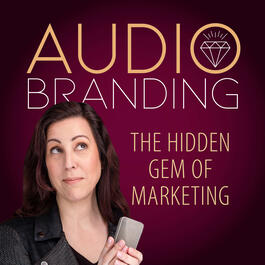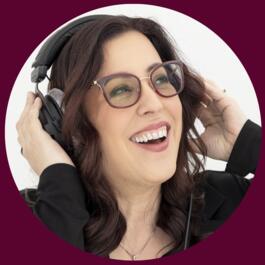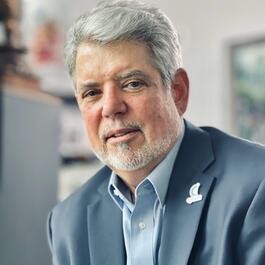
Healthy Frequencies: A Conversation with Alan R. Brunton - Part 1
“And so many people don’t pay attention to the sound that they are exposing themselves to. And, like, whenever you go to, I want to say, a large restaurant, high action, high volume, and you have to yell at the person next to you, and you have to yell your order to the server. And then finally, whenever you walk outside of the restaurant, you're finished, grab hold of yourself, you feel better because all that noise is gone. But you're thinking ‘oh, I just came out of the restaurant, so the food must have been good. We must have had a good time.’” -- Alan R. Brunton My next guest is the founder of Cymatrax Inc. He's been immersed in music for a long time and has owned and operated Allegro Data Systems, a company that archived magnetic tape recordings and remastered recordings for such clients as Southern Methodist University and Scripps Institute of Oceanography. His diverse background also includes producing a television program, being a restaurant consultant, and business administration. Now he studies epigenetics, consciousness, and quantum physics. He's focused on sound and the use of cymatics and has developed a software application to reduce stress in people's lives and raise the human potential. His name is Alan R. Brunton, and you won't want to miss all the twists and turns in this discussion. As always, if you have questions for my guest, you’re welcome to reach out through the links in the show notes. And if you have questions for me, visit www.audiobrandingpodcast.com where you’ll find a lot of ways to get in touch. Plus, subscribing to the newsletter will let you know when the new podcasts are available. And if you’d consider it, I’d love to hear what you think of the podcast! You can leave a review (that I’d love to feature on future podcasts!), either in written or in voice format from the podcast’s main page. Christmas Melodies As the episode starts, Alan tells us about his earliest memory of sound and shares a heartwarming Christmas story with a surprise twist that ended up being thirty years in the making. We go on to talk about how his father's life as an inventor helped guide his own path. "I just decided," Alan says, "that I needed to challenge myself to look at and do the hardest thing that had to do with music." He credits his family's reputation for ingenuity and determination for inspiring him to find new ways of seeing the world and new uses for some of the things in our lives that we might take for granted. "That's the way I was raised," he explains, "into 'okay this is made for this, but how else can you use it?'" Music of the Mind Alan tells us about cymatics and the relationship between audio frequencies, neurochemistry, and the human mind. “We understand in epigenetics,” he says, “that every single cell has receptors, and those receptors are influenced by four environmental influences: chemical, heat, light, and sound.” He explains how reducing noise pollution and adjusting the audio frequencies of a given sound can have dramatic effects on the brain, and the research he’s done with the University of New England on audio treatments for PTSD and autism. “Their head of research,” he says, “is going to be helping us with so many more grant proposals and submissions so that we can actually do clinical trials.” Everything Slows Down “The brain is much more capable and competent,” Alan reminds us as the interview continues, “than what we give it credit for.” He explains how what we call white noise in digital audio is actually filled with random audio frequencies, and how, just like a computer, the brain can struggle with trying to handle too much data at once. “And that's exactly what is in digital audio,” he explains, “with all of these...
From "Audio Branding"




Comments
Add comment Feedback